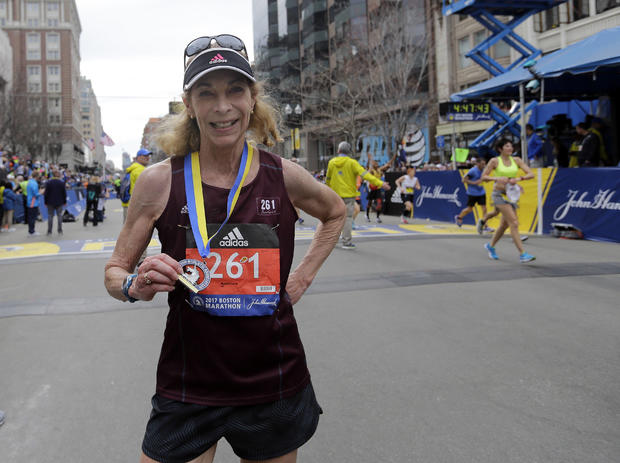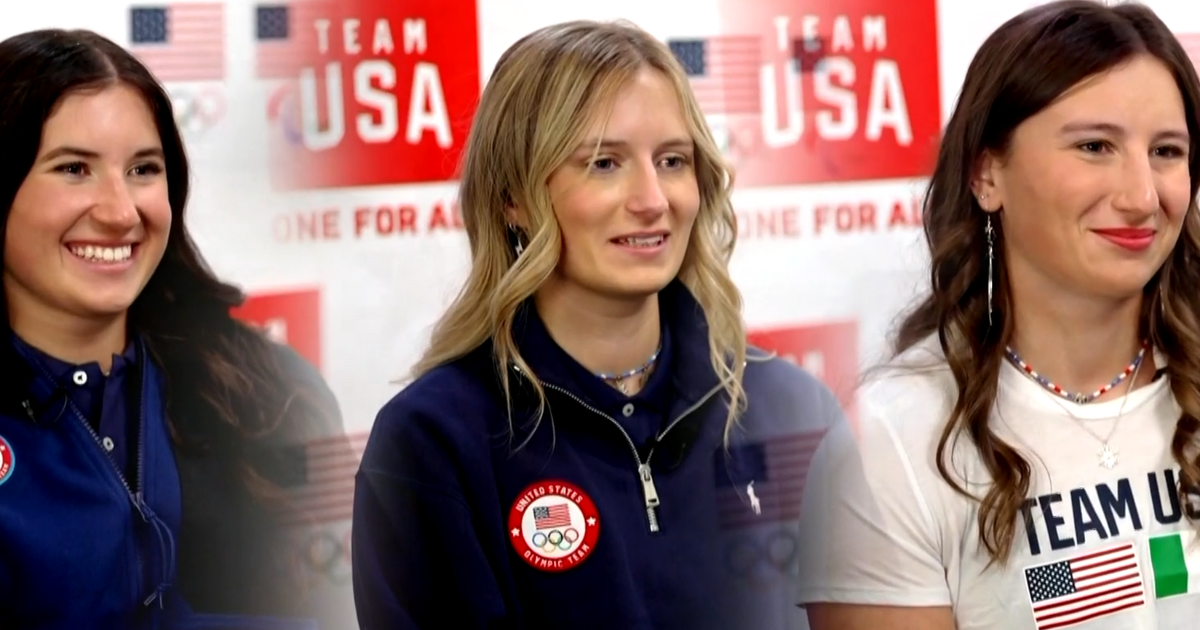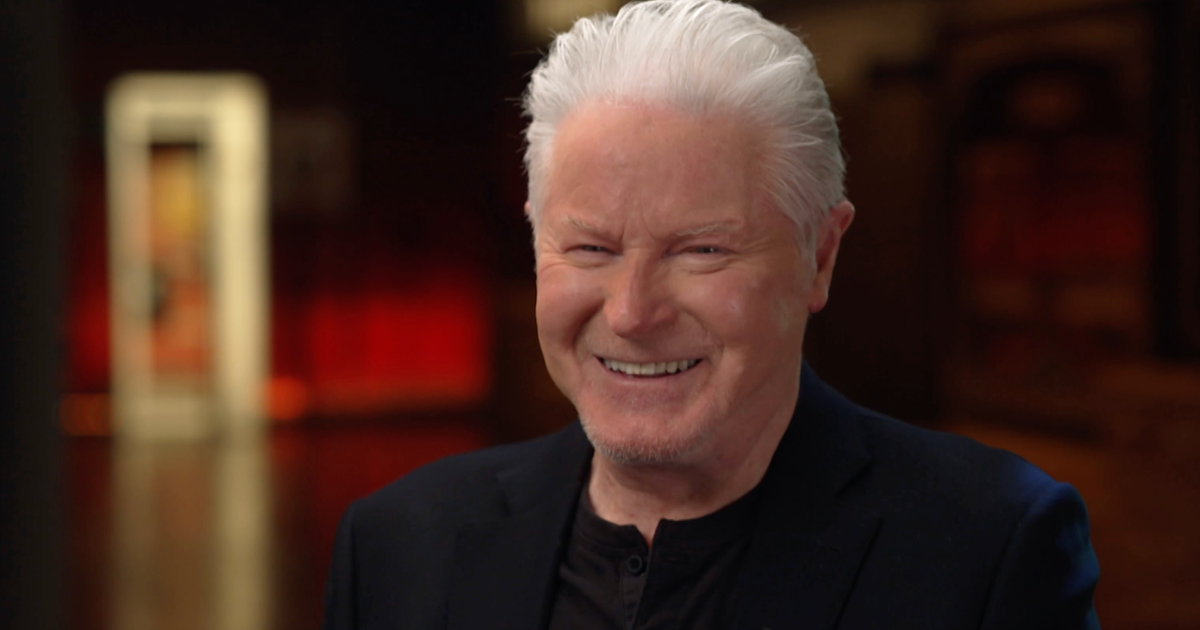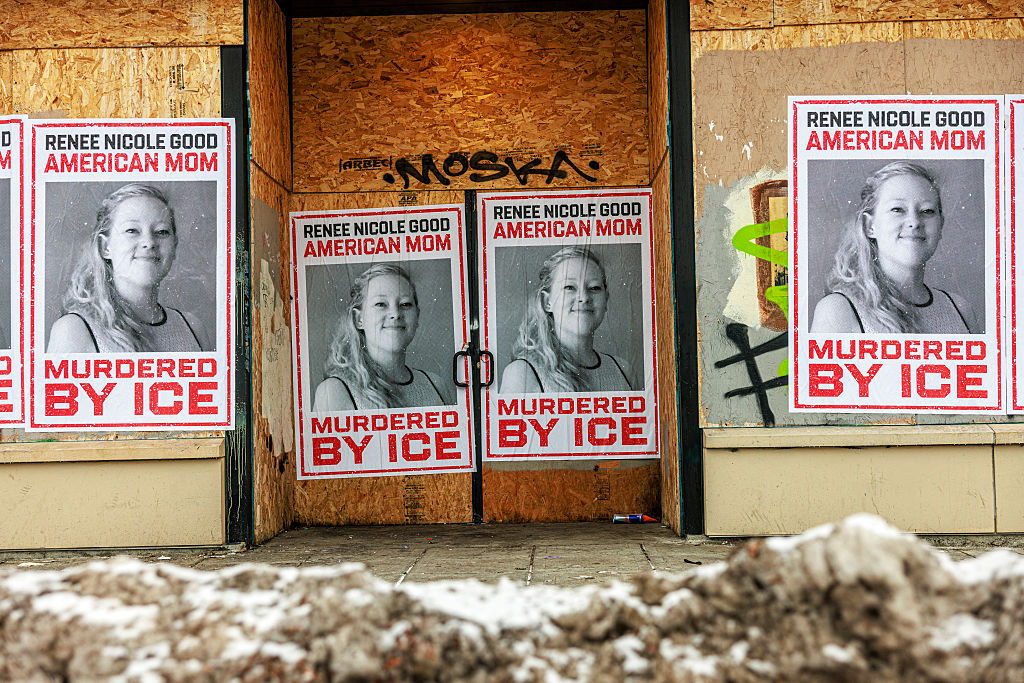"It gave me such a sense of empowerment": Meet the athlete who paved the way for women runners
At 75, Kathrine Switzer is still running 40 miles a week. Switzer told CBS News' Dana Jacobson that running is not just something she does, it has been a part of her since she was 12 years old.
"I began running every day and it gave me such a sense of empowerment. I felt like I had a victory under my belt every day nobody could take away from me," said Switzer.
When she first started running in 1959, she was a rarity. At the time, women were not encouraged to run.
"I remember the milkman coming to my mother and saying, 'Is your little girl okay? I see her out running.' And she said, 'No, no, no. She's fine,'" Switzer said. "My girlfriends who were concerned, you know, 'You're gonna get big legs. You're gonna grow hair on your chest. You're never gonna have children.' All of these myths, they really believed."
Despite being warned by her friends, and even doctors, Switzer refused to believe running was dangerous for her because she felt good when she ran.
Her love for running would soon be put on the spotlight when at 20, she ran the Boston Marathon during a time when women weren't allowed to even participate in the event.
"There was nothing about gender on the entry form. And my coach said, 'You have to enter the race. You don't count if you don't enter the race.' So I entered the race, but I signed my name K.V. Switzer. That's how I got the bib number," she recalled.
When an official spotted her in the race, she was told to leave. He even attempted to rip Switzer's bib off before he was stopped by Switzer's boyfriend, who was running the race with her.
"If I don't finish this race, nobody's gonna believe women can do it. So I decided to finish the race and that changed my life," she said.
Five years later in 1972, women were officially allowed to enter the Boston Marathon. The publicity led to more opportunities for women—including the first-ever all women's road race with Johnson Wax's Crazy Legs Shave Cream as the sponsor.
"And they thought, "Wouldn't it be cool to have a women's-only marathon in Central Park?' Well, there are only about eight of us who could run a marathon," Switzer said.
Switzer, along with fellow elite runner Nina Kusick and founder of the New York City Marathon Fred Lebow, came up with the idea of one lap of Central Park — equivalent to six miles or 10,000 meters. The race was named the Crazy Legs Mini Marathon 10K.
But there were obstacles from the start.
"The biggest challenge was because they maybe jogged a mile or two a day. But now, this was six miles, and that really scared them. We sent out so many entries. We had 78 women show up," Switzer said.
Switzer still has the T-shirt she wore in the inaugural race in June of 1972, and it still fits her. The race, now known as the NY Mini Marathon, is still held every year. This year marked its 50th anniversary. Switzer said she is honored that the race is a part of her legacy and the impact it has had on woman runners.
"It's almost become a rite of passage for a woman runner to show up in New York in early June and go run this race," she said.




